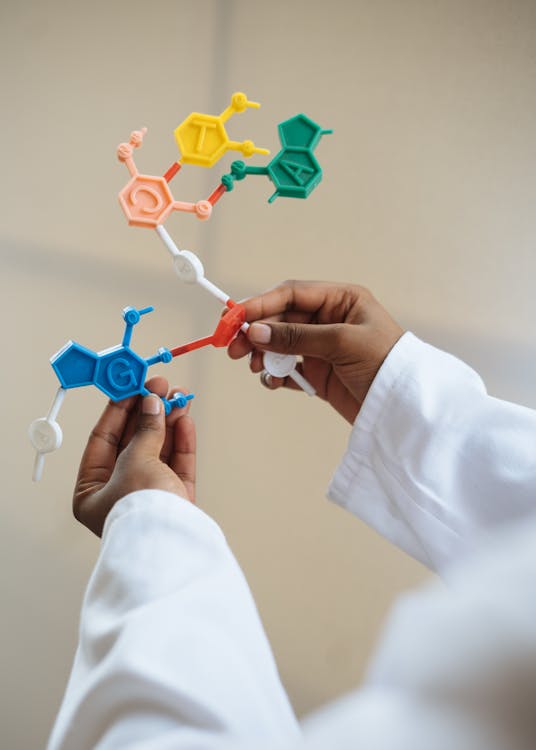Topic Discussed in this Article
- 1 Is Biochemistry hard?
- 2 Biochemistry as an under grad curriculum
- 3 Types of Electives or minors available to study with biochemistry
- 4 Types of Biochemistry Classes
- 5 Understanding Chemistry Subjects in Biochemistry Courses
- 6 What is biochemistry?
- 7 Common Questions About the Biochemistry Major Course
Choosing biochemistry major might be a difficult choice for you. But you should ask yourself a question that Is Biochemistry Hard as a major? Well… It depends.
Any college course has the potential to be difficult, but some students may find biochemistry to be especially challenging. The material covered in a biochemistry class can be very dense, and requires a lot of critical thinking to understand. However, difficulty is relative. Some students may breeze through a biochemistry class with no trouble, while others may struggle.
There are a few factors that can affect how hard someone finds biochemistry:

- How much prior knowledge they have: If someone has already taken a lot of chemistry classes, they will likely have an easier time with biochemistry than someone who is starting from scratch.
- How well they learn visually: Some students prefer to learn by seeing diagrams and visual aids, while others prefer to learn by reading and listening to lectures. Students who learn better visually may find biochemistry harder, because the material can be quite abstract.
- How good they are at math: Biochemistry often requires calculations and problem solving, so students who are comfortable with math will likely find it easier than those who aren’t.
Is Biochemistry hard?
In general, whether or not someone finds biochemistry hard depends on their individual learning style and background knowledge. However, there are resources available to help everyone succeed in a biochemistry class. With hard work and dedication, anyone can succeed in biochemistry!
Biochemistry as an under grad curriculum
A biochemistry degree is an undergraduate degree that usually takes four years to complete. The first two years are typically spent completing lower-level coursework, such as general chemistry and biology. The last two years are spent completing upper-level coursework, such as biochemistry and organic chemistry.
Many students who complete a biochemistry degree go on to pursue careers in the medical field, such as medicine or dentistry. Others go on to pursue careers in research, either in academia or the private sector. Still others use their biochemistry degree to enter into other fields, such as business or law.
So, is a biochemistry degree hard? It depends. The material covered in a biochemistry degree can be challenging, but it is also very interesting and rewarding. If you are willing to put in the effort, you will find that you can succeed in this program.
Types of Electives or minors available to study with biochemistry

There are many different types of electives and minors available to study with biochemistry. Some examples include:
- medical biochemistry
- biochemical engineering
- computational biochemistry
- pharmacological biochemistry
- marine biochemistry
Each of these areas focuses on a different aspect of the field, so students can choose an area that interests them the most. Still think is biochemistry hard? You might want to have a look on the type of classes you can have in biochemistry major.
Types of Biochemistry Classes

There are a variety of biochemistry classes available, depending on what you are looking for.
- If you want to focus on the chemical side of biochemistry, there are classes that will teach you about organic chemistry and other related topics.
- If you want to focus on the biology side of things, there are classes that will teach you about cell biology and other related topics.
- if you want to focus on both sides equally, there are also classes available that cover both chemical and biological aspects of biochemistry.
No matter which type of class you choose, though, you can expect to learn a lot about how the human body works at a molecular level. Is biochemistry difficult for you? You may want to read more about the subjects.
People Also Read: How does Ancestry DNA Matching Work?
Understanding Chemistry Subjects in Biochemistry Courses

There are many different subjects within biochemistry courses, and each one can present different challenges. Here is a brief overview of some of the most common subjects taught in biochemistry courses:
- Inorganic chemistry: This subject covers the basics of atomic and molecular structure, as well as bonding between atoms. Inorganic chemistry can be difficult for students who have not had a strong background in chemistry.
- Organic chemistry: This subject covers the structure and reactivity of organic molecules. Organic chemistry can be difficult for students who have not had a strong background in either chemistry or mathematics.
- Physical chemistry: This subject covers the behavior of matter and energy on the atomic and subatomic level. Physical chemistry can be difficult for students who have not had a strong background in physics or mathematics.
- Biochemistry: This subject covers the chemical processes that occur in living organisms. Biochemistry can be difficult for students who have not had a strong background in either biology or Chemistry. You study DNA Extraction in it.
- Biotechnology: Is is a branch that deals with the manipulation of the living process to benefit human being. How Biotech has helped mankind? it is a question needs to be discussed.
What is biochemistry?

Assuming you would like a detailed explanation of what Biochemistry is:
Biochemistry is the branch of science that explores the chemical processes within and relating to living organisms. By applying chemical knowledge and techniques, biochemists can improve our understanding of how cells work and how we can maintain health or treat disease.
In its simplest form, biochemistry is the study of the molecules that make up living things, and how these molecules interact with each other. Proteins, carbohydrates, lipids, nucleic acids and enzymes are all examples of the types of biomolecules that biochemists study. The chemical behavior of these biomolecules provides insight into how they carry out the functions of life.
People Also Read: Top 10 Biotechnology Books to Read
The field of biochemistry emerged from a confluence of chemistry, physiology, and biology in the late 19th century. As early as the 1820s, scientists such as Justus Liebig were conducting experiments that suggested that many important biological processes were chemical in nature. In 1828 Friedrich Wöhler synthesis urea (a major component of urine), also called amine-based fertilizer, which was previously thought to be an organic compound that could only be produced by living things; this event is widely considered to mark the birth of biochemistry.
In the 1880s Emil Fischer pioneered methods for isolating and studying enzymes; he went on to elucidate the structure of many important biomolecules including sugars, purines, and pyrimidines. Have questions about Is Biochemistry Hard as a Major Subject?
Common Questions About the Biochemistry Major Course

-How long is the Biochemistry major?
-What are the requirements for the Biochemistry major?
-What can I do with a Biochemistrymajor?
-Is the Biochemistry major hard?
The Biochemistry major is a four-year program. Requirements for the major include coursework in mathematics, physics, chemistry, and biology. With a degree in biochemistry, students can pursue careers in research, medicine, pharmaceuticals, and more. The difficulty of the major depends on the student’s individual strengths and weaknesses.
